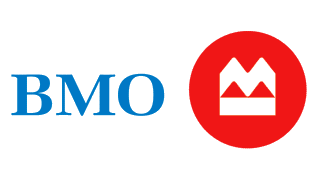Today's listings all come from the land of maple syrup
Canada
Bank of Montreal lists three factor ETFs and a Shiller ETF
Canada's third-largest bank has listed several new ETFs in Toronto. They are:
BMO Shiller Select US Index ETF (ZEUS)
BMO MSCI Canada Value Index ETF (ZVC)
BMO MSCI EAFE Value Index ETF (ZVI)
BMO MSCI USA Value Index ETF (ZVU)
BMO High Yield US Corporate Bond Index ETF (ZJK)
ZEUS is the most interesting of the listings and is the first ETF to track this index developed by Nobel laureate Professor Robert Shiller. The Shiller index uses cyclically adjusted price earnings ratios to identify which companies are overvalued and undervalued. The index is also handy for measuring when assets are in bubbles. (It was this work that won Prof Shiller is Nobel prize.)
ZVC tracks Canadian companies that are judged to be undervalued. In assessing value, MSCI looks at book value, forward earnings and cash flow. Interestingly (but by no means uniquely) the biggest constituent of this index is the Bank of Montreal itself.
ZVI tracks undervalued companies in rich countries outside of North America. iShares has a product already that tracks this index.
ZVU works much the same as the two aforementioned funds, only it looks to undervalued US companies.
ZJK seeks to track high-yield corporate bonds issues by American companies. The index it uses also ensures that the bonds are sufficiently liquid.
First Asset lists bond ETF that loves all debts
Canadian issuer First Asset has listed its Enhanced Short Duration Bond ETF(FSB/U). FSB will be actively managed and invest in debts across the credit spectrum, from cash, to sovereign debt, to junk bonds, to convertible debentures, to credit derivatives. FSB's duration target is less than 2 years.
Today's news from around the web
Bank of America Merrill Lynch biggest ETF holder
ETF issuers want to know who buys their ETFs, but its often hard to find out. But new research from ETFGI has found that the biggest ETF buyer and holder to be plain old Bank of America Merrill Lynch, with holdings of more than $100bn.
Guggenheim wanted to sell more
Guggenheim tried selling its whole retail investment business before settling for just its ETF business. According to the FT, Guggeinheim wanted to sell its mutual funds and Rydex funds to Invesco as well, but Invesco declined after doing due diligence. The story is at odds with Guggenheim's official line, which holds that the ETF business was sold because it was duplicating what its mutual funds were doing.
Smart beta getting bigger
Sovereign wealth funds and insurers will allocate 50 percent more money into smart beta ETFs by 2020, new research by Invesco has found. Looking to lower risk, reduce costs and diversify, institutional investors are opting for smart beta rather than more traditional equity funds. Demand for smart beta funds has already increased substantially the past 12 months.



